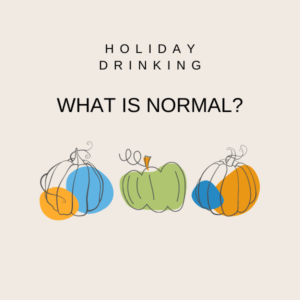Recovery and St. Patrick’s Day
Most often, when people in recovery from alcohol and drug dependence think about getting through the Holidays and staying sober, they think about Thanksgiving, Christmas, and New Years. These Holidays are sometimes referred to as the Bermuda Triangle of relapse. March 17th is often forgotten in the mix of holidays, despite its association with pubs, drinking, and parades. The hazards of relapse are all there for the individual who has years of ingrained patterns of using when celebrating this occasion.
These triggers are similar to those associated with the other holidays. Memories of music, the smells of traditional foods, and even the color green can all trigger the positive memories from the past, while the blinders of denial shield the mind from the negative consequences experienced in years gone by. As with other holidays, liquor may appear in places one was not expecting. Proprietors and friends may offer a red solo cup of beer, or a shot of Irish whiskey for your coffee, in a local business. Caught off guard, in a moment of awkwardness, one may be inclined to accept that “wee drop” while others, who can drink without impunity, are enjoying their beverages all around.
The plan, and the principles applied, is the same as any other plan for early recovery. First, avoid people, places, and things associated with past drinking/using rituals. Remember, this is not a life sentence. Many people in recovery enjoy going to parties and other places where liquor are served, but only after they have developed a firm foundation in recovery! The time this may take varies, but most people in recovery will advise that anyone with less than a year sobriety should avoid being around parties and alcohol like they would the plague. If you have to ask yourself if being around alcohol is a good idea, it probably isn’t.
Next, plan your day. Begin by getting your head on straight. An early morning AA/NA meeting is an excellent start. If one is spiritually inclined, one can follow the true Irish tradition of attending mass on Saint Patrick’s. If one is going to party, party with people that are in recovery also. After work one could attend a meeting when everyone else is off to the pub. In Ireland, Saint Patrick’s Day is traditionally celebrated by attending mass, and then spending the holiday with family and a traditional Irish meal (which is not corned beef and cabbage, by the way). This could be Shepherd’s Pie or salmon served with mashed potatoes. And of course you can’t leave out the Irish Soda Bread, which is a simple to make recipe and delicious served warm with butter.
The key for a successful life in recovery is to replace old drinking/drugging rituals with new rituals, preferably shared with a non-using social support network. So don’t be gloomy on this special holiday dwelling on the old days. Begin a new life centered on new enjoyable activities with clean and sober friends and many years ahead of memorable Saint Patrick’s Days!
By Thomas Finnerty, MHS, LCADC, HS-BCP


